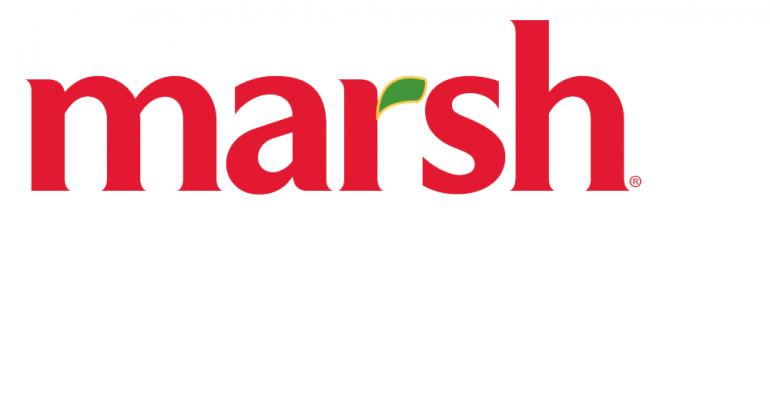Marsh Supermarkets tried to keep its stores in shape, but ultimately couldn’t withstand a two-front competitive assault from Kroger and Meijer.
The latter two companies dumped hundreds of millions into Marsh’s regional marketplace in the last two years with multiple remodels and new store construction, Marsh’s Chief Restructuring Officer Lee A. Dierks said in a disclosure statement accompanying Marsh’s Chapter 11 bankruptcy petition in Wilmington, Del., Thursday.
Marsh tried to fight back by slashing costs and spending $15 million of its own on store refurbishments over the same period, Dierks said, but was unable to achieve the sales lift the company had sought. When new Kroger and Meijer stores opened, competing Marsh units saw double-digit sales declines and liquidity challenges followed shortly, he added.
According to Metro Market Studies, Marsh has lost more than two percentage points of market share in its home Indianapolis market between 2013 and 2017 — before rounds of recently announced closures, falling to fourth in the market behind Kroger, Walmart and Meijer — all of which operate at least some large-scale supercenters there.
Kroger’s “market fill-in” strategy — a program directing capital spending to markets where it feels it can meaningfully grow share — has been especially effective in Indianapolis, officials have remarked, citing its success there as a model for places like Wisconsin, where it is addressing the recently acquired Pick n’ Save banner.
Kroger just over two years ago said it would invest nearly half a billion dollars in the Indianapolis area on 11 new stores including seven Kroger Marketplace supercenters and 17 remodels.
That investment put additional pressure on Marsh, which was also dealing with high debts and underfunded pensions, Dierks noted in the disclosure.
Pension funds Central States Southeast and Southwest (owed $61.5 million) and Marsh Supermarkets PRIAC (owned $21.7 million) are identified as the company’s two largest unsecured claimants. Marsh also owes $8 million to Supervalu, which took over its supply contract last year from C&S Whole Grocers. C&S is Marsh’s seventh largest creditor with an $800,000 claim.
Marsh’s objective in bankruptcy court is to find a buyer for its remaining stores as quickly as possible, the company said, in order to avoid being forced to close the 44 “core stores” that remain open. According to a declaration in the bankruptcy filings by Scott Moses, managing director of Peter J. Solomon Co., the company as constituted cannot afford July rents due June 25, so is aiming to be able to assume or reject those leases by June 19.
Moses, whose firm was engaged by Marsh late last year to explore options, in the declaration added that five parties have expressed interest in some combination of the stores but a “going concern” offer has yet to have emerged. Marsh and Solomon would continue to market the assets.
This story was updated to clarify statements made in a court declarations and not an interview.





